Navigating the aftermath of a car accident can be overwhelming, particularly when it comes to understanding the ins and outs of auto insurance laws in Florida. Are you familiar with the minimum coverage that’s legally required in the state? Or the specifics of the no-fault insurance system? What about the rights you have if you’re injured in an accident? This glossary brought to you by LawDefined.com, the personal injury law experts in Fort Myers, is designed to educate Southwest Floridians on these critical terms and set them on the right path should they need legal assistance.
Minimum Florida Auto Insurance Requirements
Florida law requires drivers to carry two types of auto insurance:
- Personal Injury Protection (PIP): Covers medical expenses, regardless of who’s at fault.
- Property Damage Liability (PDL): Pays for damages you or your family members cause to other people’s property in a crash.
Understanding these requirements is the first step in ensuring that you’re adequately covered.
No-Fault Florida Auto Insurance System
The Florida no-fault system means that after a car accident, your own insurance company will cover your medical expenses up to the limit of your PIP coverage, even if you weren’t at fault for the accident.
Steps After a Car Accident
If you’re involved in a car accident, it’s crucial to:
- Call the police to file a report.
- Seek medical attention immediately, even if you feel “fine”.
- Contact your insurance company to report the accident.
- Document the scene and gather evidence, if possible.
- Consult with a Car Accident Attorney in Fort Myers or a Personal Injury Lawyer in Southwest Florida, particularly if there are significant damages or injuries.

Suing for Additional Damages
Under Florida law, if you sustain severe injuries, you may step outside the no-fault system and pursue a claim against the at-fault driver for additional compensation, including pain and suffering.
Uninsured/Underinsured Motorist Coverage
This coverage protects you if you’re hit by a driver who doesn’t have enough insurance to cover the costs of an accident. In Florida, this coverage is not mandatory but highly recommended.
Time Limits for Filing Claims
After a car accident in Florida, you typically have 14 days to seek initial medical treatment in order to be eligible for your full PIP benefits. Beyond PIP claims, you generally have four years from the date of an accident to file a lawsuit for personal injury.
Impact on Auto Insurance Premiums
Filing a claim may cause an increase in your auto insurance premiums, but it depends on the specifics of the accident and your previous driving record.
For a more comprehensive understanding of how Florida’s auto insurance laws may affect you and for legal support related to any auto accident, reach out to LawDefined.com. Our team is dedicated to providing expert advice to alleviate your stress in what can often be a confusing process. Remember, in the realm of auto insurance and personal injury law, knowledge is the key to empowerment.
Need legal advice after a car accident? Contact a seasoned Car Accident Attorney in Fort Myers or the surrounding Southwest Florida counties today, and ensure you’re taking the right steps post-accident.

Disclaimer: The information provided in this article is not legal advice but general information on legal issues commonly encountered. Articles on LawDefined.com do not create an attorney – client relationship and are not a substitute for consulting or hiring an attorney or law firm.
Key Florida Auto Insurance Terms and Definitions
To further assist in your understanding of auto insurance in Florida, here are some key terms and their definitions:
- Bodily Injury Liability (BIL): Insurance coverage that pays for serious and permanent injury or death to others when you cause a car accident. BIL can cover medical expenses, lost earnings, and legal fees.
- Collision Coverage: This part of your auto insurance policy covers damage to your vehicle resulting from a collision with another vehicle or object.
- Comprehensive Coverage: Offers protection against damages to your car that are not caused by a collision, such as theft, fire, or natural disasters.
- Deductible: The amount you agree to pay out of pocket before your insurance coverage begins to pay. Choosing a higher deductible can lower your premium costs.
- Exclusion: A provision in an insurance policy that eliminates coverage for certain risks, people, property classes, or locations.
- Gap Insurance: An optional, add-on insurance coverage that can help cover the gap between the amount owed on your vehicle and its actual cash value in the event it is destroyed or stolen.
- Liability Coverage: A mandatory part of your auto insurance, liability coverage pays for bodily injury and property damage that you may cause to another person while operating your vehicle.
- Personal Injury Protection (PIP): A coverage that is part of Florida’s no-fault insurance. It covers your medical expenses and lost wages regardless of who caused the accident.
- Premium: The amount you pay for your auto insurance coverage. This can be influenced by factors such as your driving record, the type of vehicle you drive, and your chosen coverages and deductibles.
- Property Damage Liability (PDL): Pays for damages to someone else’s property that you or your vehicle cause in an accident. In Florida, it’s a legal requirement.
- Uninsured Motorist Coverage (UM): This insurance protects you in the event of an accident with a driver who does not have auto insurance, or in the case of a hit-and-run.
Understanding these terms is vital for navigating auto insurance policies and ensuring you have the appropriate coverage for your needs.
Common Auto Insurance Misconceptions
When it comes to auto insurance, misconceptions can lead to poorly informed decisions, potentially costing drivers both financially and legally. Here are some prevailing myths that need clarification:
- Myth 1: “Full coverage” includes everything you could possibly need. In reality, there is no policy termed “full coverage” that automatically includes every form of insurance protection. What is often referred to as full coverage generally combines liability, collision, and comprehensive coverages, but may lack crucial options like uninsured motorist or medical payments coverage.
- Myth 2: The color of your car affects your insurance rate. The color of a vehicle has no impact on insurance premiums. Factors such as the car make, model, engine size, and the driver’s history and location are what influence rates.
- Myth 3: Personal auto insurance covers both personal and business use of your car. Most personal auto insurance policies exclude coverage when the vehicle is used for business purposes. This misunderstanding could leave drivers significantly exposed in the event of an accident while conducting business.
- Myth 4: Older drivers always pay more for car insurance. While it’s true that very young drivers typically face higher premiums due to their lack of driving experience, seniors do not automatically face increased rates. Many insurance companies even offer discounts for mature drivers who take defensive driving courses.
- Myth 5: If a friend borrows your car and crashes it, their insurance will cover the damages. In most cases, insurance follows the vehicle, not the driver. This means your auto insurance policy would likely be the primary coverage to handle the claim, regardless of who was driving.
Dispelling these myths is essential for drivers to fully understand their coverage needs and to ensure they make informed decisions that provide the right level of protection on the road.
Seeking legal advice following an auto accident is not just beneficial—it’s often crucial. Effective legal counsel can intricately dissect the nuances of your situation, providing clarity and direction in the often complex world of auto insurance claims and personal injury law. Beyond just filing claims, a proficient attorney can help you understand your rights, the full extent of your coverage, and guide you in negotiations with insurance companies, ensuring you receive the full compensation you’re entitled to. Especially in scenarios where the liable parties contest claims or in the unfortunate event of serious injuries, having an experienced legal advocate on your side can make a significant difference in the outcome of your case. Remember, insurance companies possess a wealth of resources dedicated to minimizing their payout; securing legal representation levels the playing field, giving you the support necessary to safeguard your interests and reach an equitable resolution.
- What does Collision Coverage actually cover?
- Collision Coverage is specifically designed to cover the cost of repairs to your vehicle following a collision, whether it’s with another vehicle or an object, like a fence or a tree. If your car is totaled, this coverage can also reimburse you for the vehicle’s value at the time of the accident, minus your deductible.
- Do I really need Uninsured Motorist Coverage (UM) if I have health insurance?
- Yes, it’s still advisable to have Uninsured Motorist Coverage. While health insurance can cover your medical bills, UM coverage also takes care of other expenses like lost wages, pain and suffering, and long-term treatment related to the accident that health insurance may not cover. Plus, it provides coverage for damages caused by drivers who lack adequate insurance.
- Is Gap Insurance necessary for all vehicles?
- Gap Insurance is not necessary for all vehicles but is highly recommended if you lease or finance a new car. Depreciation can leave you owing more on your loan or lease than the car is worth. If your vehicle is totaled or stolen, Gap Insurance helps cover the difference between the car’s actual cash value and the amount you still owe, providing peace of mind during the early years of ownership.
- How does a higher deductible affect my Premium?
- Choosing a higher deductible generally lowers your premium costs. A deductible is the out-of-pocket cost you agree to pay before your insurance kicks in. By opting for a higher deductible, you take on more financial responsibility in the event of a claim, which reduces the risk and cost for the insurance company. Consequently, they reward this choice with lower premiums.
- Can the Exclusion provision in an insurance policy be modified?
- Yes, exclusions in an insurance policy can sometimes be modified or waived, but this often requires paying an additional premium for an endorsement or rider that provides the desired coverage. It’s essential to discuss specific needs and concerns with your insurance agent to understand which exclusions can be modified and at what cost, ensuring your policy meets your individual needs.


